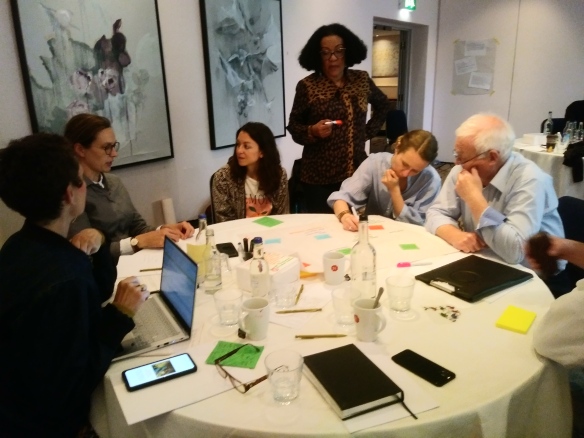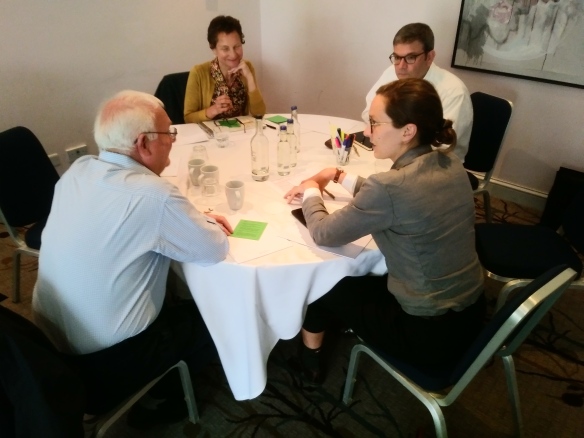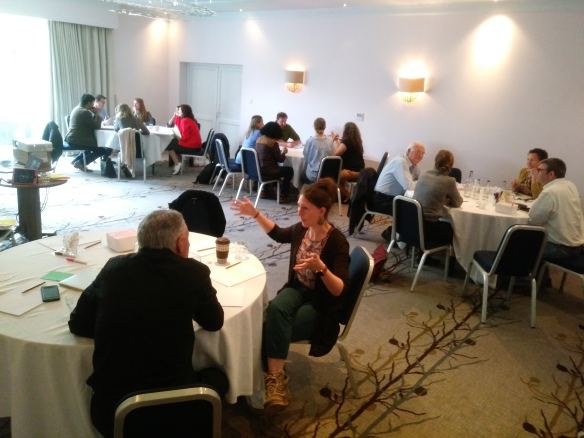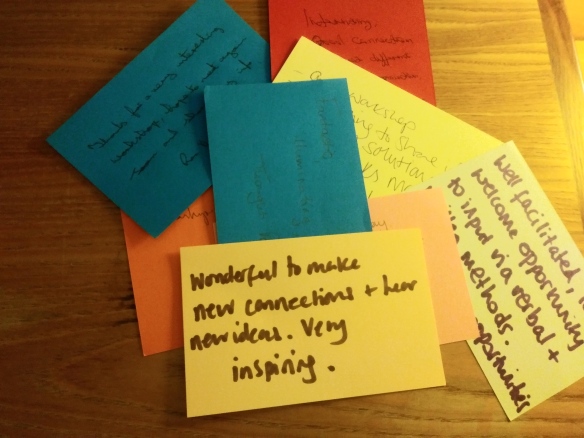Many research projects seek to involve external stakeholders in the later stages of the research proposal process, often very near to the funding submission date. This means that the projects often miss out on their valuable input.
However, our recent project with Dr Angelina Sanderson Bellamy, Associate Professor of Food Systems of the Department of Applied Sciences at the University of the West of England (UWE) sought to bring stakeholders involved with the co-design of the proposals at a much earlier stage.
Dr Sanderson Bellamy enlisted the Centre for Facilitation, in her words, “to access expertise to help with planning the workshop activities so that we could achieve our objectives and then again help with the actual running of the event, so that I could focus on the content of what was happening, rather than the smooth flow of the activities.”
The project team from UWE worked hard to convince stakeholders to participate in what was an innovative structure for this kind of work.

The project
After two virtual collaboration sessions that helped to scope out the project outlines, fourteen researchers and 12 food system stakeholders, including community activists, farmers, and representatives of the city council, joined us in co-design on the first day of a residential, with an open invitation to stay over and continue refining the work on day two.
One notable learning insight from a unanimously positive first day involved one of the research teams agreeing to rethink an original idea following insight from stakeholders who had already seen a similar approach fail. This was only possible thanks to the process providing enough time and space for all attendees to share their ideas, concerns and experiences.

The outcome
This inventive approach engaged stakeholders in a way in which they had never been involved before, developing proposals rather than being asked to support a pre-written proposal without time to properly scrutinize what is being suggested.
The client was delighted to have the benefit of professional facilitation, stating that one major advantage of using a facilitator was that they could “shoulder the burden of moving us through the agenda of activities and keeping participants on task.”
Dr Sanderson Bellamy reported that the sessions helped the stakeholders appreciate the value of working with UWE, whilst the University itself “now understands the value of the process that I proposed…and the value of building stronger connections between researchers across the network.”

The future
The projects resulting from the sessions are being developed, supported by small funding pots, with a view to growing and achieving further funding in the future. Of working with the Centre for Facilitation, Dr Sanderson Bellamy said it was “brilliant. Loads of experience to draw from based on what works and lots of ideas of different ways to organise activities to achieve objectives.”


You must be logged in to post a comment.